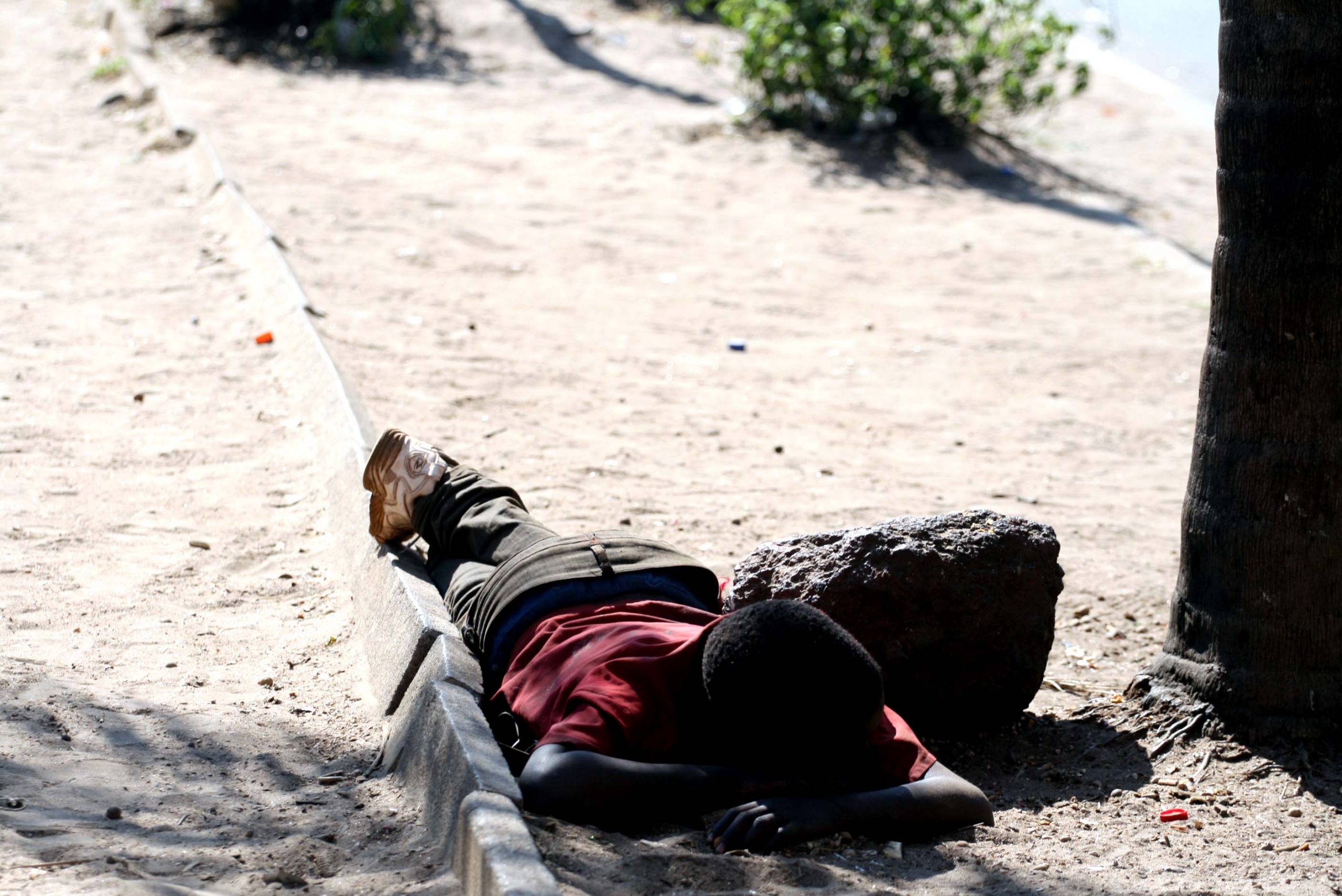
Pale, scrawny-faced and with bloodshot eyes from a night of improper sleep, Tanatswa (we are blessed) Zivende starts his day as early as 5am at one of the city’s fast food outlets begging for anything from food to money from passers-by.
BY STEPHEN CHADENGA
The 12-year-old’s filthy and torn clothes and his unwashed body give a pungent smell that testifies of months gone by without a single bath.
“Brother, may you give me two rand please,” he pleads, gazing at a hurriedly walking young man who is clutching a box of pizza. The smartly-dressed man tosses a coin at him which he catches with both hands — clearly a treasured gift not to be taken for granted.
This routine speaks of Zivende’s daily life (hardly the life his parents had in mind when they gave him the name “we are blessed”), and that of a growing number of under-privileged children that live on the streets of Gweru.
As the day progresses towards noon, a group of Zivende’s peers, aged between 10 and 16, gather at a street corner outside a restaurant in the central business district, with their heads ducked to the ground like a group of vultures around a carcass. One of the boys is clutching a pack of playing cards which he distributes to the others with the dexterity of an experienced gambler.
They are playing a game of poker, gambling away the money collected from well-wishers.
There is excitement among the little gamblers, clearly oblivious of the laws of the country that make their little game illegal. Nobody, including the police, seems to care as they go about their business, avoiding bumping into the boys.
- Chamisa under fire over US$120K donation
- Mavhunga puts DeMbare into Chibuku quarterfinals
- Pension funds bet on Cabora Bassa oilfields
- Councils defy govt fire tender directive
Keep Reading
“We gamble with denominations ranging from two rand to a dollar depending on the availability of cash,” Zivende says.
“After a good play, you can end up with $5, which means you have enough money for a loaf of bread, a soft drink and fresh chips to last you even a whole week.”
Zivende’s tale of street survival is a result of child neglect by relatives after the death of his parents five years ago.
A month ago, a relative he had been staying with in Chiwundura dumped him at Kudzanayi bus terminus in Gweru.
“Life is not rosy here, you can get beaten by older children who at times force you to surrender the little money you would have made from begging or gambling. During gambling, they sometimes beat us if we win and take all the money,” Zivende says.
For 10-year-old Tawanda Moyo, the story is quite different. His parents are both alive.
They are destitute and live on the outskirts of the city in makeshift plastic shacks.
While his parents spend the day scavenging through garbage piles behind shops where they salvage anything valuable to sell, Moyo would be begging with other kids during the day before he joins his parents at dusk at the shacks along the Gweru-Masvingo railway line.
“It’s like division of labour and I am expected to contribute something towards the family’s well-being,” Moyo says. “That is why I end up gambling with other kids. You try to come up with ways to make money. Even five rand that you bring home is considered big.”
Women and child rights campaigner Alice Shiri says such habits as gambling could end up grooming hooligans out of otherwise innocent children.
The Gweru courts have of late been inundated with cases of women that are raped and robbed of mobile phones, cash and other valuables by street kids.
“Many of these homeless children end up being influenced into bad habits by other children living on the streets. They end up living the life of prostitution, drug abuse and gangster-style extortion,” Shiri said.
Despite the dire economic situation in the country, organisations headed by Shiri that deal with orphans and abandoned children have made strides in rehabilitating some of the children.
“We have helped more than 60 orphans and will continue to help disadvantaged children by providing them with food, clothing, sport as well as entertainment through the Hopeful Life Pre-school and Children’s Centre,” Shiri, who is the director for Hopeful Life for Widows and Orphans in Africa, said.
The Zimbabwe Family Planning Council (ZNFPC) Midlands Province has a Youth Friendly Corner at Gweru District Hospital (Birchenough) where adolescents can access sexual and reproductive health facilities.
While the programme is mainly targeted at urban youths aged between 10 and 24 years, ZNFPC has not forgotten the vulnerable children who live on the streets.
“We have managed to have a group of under-privileged children on the streets who are also coming to access sexual and reproductive health services,” Gweru district nursing officer, Teresia Shumba said at the official opening of the centre.
Studies have shown that children living on the streets are vulnerable as they lack information on reproductive health with most of them either silently abused or turning to drugs and prostitution.
Despite the many strides made by government and non-governmental organisations in dealing with the problem of children of living on the streets, there seems to be no lasting solution to the challenge as their numbers continue to surge.










